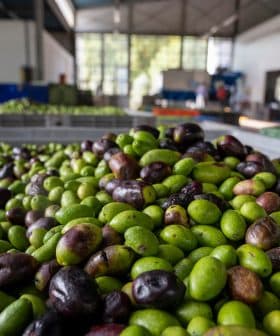Mediterranean Diet Linked With Long-Term Health Benefits for Teenagers
Adolescents who consumed food items of the Mediterranean diet had higher levels of antioxidants and anti-inflammatory properties in their blood serum.
Adolescents with higher adherence to the Mediterranean diet showed increased levels of antioxidants and anti-inflammatory properties in their serum, potentially preventing metabolic and chronic diseases later in life, according to a study in Calabria, Italy. The study used the KIDMED index to score adherence to the diet, with optimal adherence associated with intake of whole cereals, fruits, vegetables, olive oil, and other healthy foods.
Higher levels of adherence to the Mediterranean diet in teenagers may be a highly influential factor in preventing metabolic and chronic diseases later in life, the results of a new study show.
Researchers in Calabria – the second largest olive oil-producing region in Italy – analyzed the serum of healthy adolescents, aged 14 to 17.
Serum from optimal adherers showed anti-inflammatory and antioxidant properties which may exert a positive impact on the prevention of metabolic and chronic diseases in adulthood.
They found higher levels of antioxidants and anti-inflammatory properties in the serum of adolescents more closely adhering to the Mediterranean diet.
See Also:Health News“Our results highlight the importance of the Mediterranean diet as a choice of healthy dietary quality in adolescents,” Daniela Bonofiglio, a professor of pathology, nutrition and dietetics at the University of Calabria, told Olive Oil Times.
“Serum from optimal adherers showed anti-inflammatory and antioxidant properties which may exert a positive impact on the prevention of metabolic and chronic diseases in adulthood,” she added.
Using the Mediterranean Diet Quality Index for children and teenagers (KIDMED), the researchers scored adherence to the Mediterranean diet in the adolescents that participated in the study.
A value of +1 was assigned for the intake of whole cereals or grain, vegetables, fruits, legumes, dairy products, fish, nuts and olive oil. A value of −1 was assigned for skipping breakfast, eating fast food and consuming baked goods and sweets.
The results were ranked from zero to 12, with ‘optimal adherence’ considered a score of eight or more and ‘poor adherence’ a score of three or lower.
Subjects provided information on their daily meals through a 24-hour dietary recall completed via an interview conducted by nutritionists. This enabled the potential antioxidant and anti-inflammatory properties to be assessed using various biomarkers, as well as nutritional intake.
The results of the study showed that among the 43 percent of participants who scored in the ‘optimal adherence’ category, there was clear evidence of increased levels of antioxidants and anti-inflammatory properties.
Bonofiglio was encouraged by the results and said they further demonstrate the importance of a healthy diet for adolescents.
“We think that the empowerment of the Mediterranean diet adherence represents a protective choice against a wide spectrum of chronic diseases, including cancer,” she said.
The research team plans to continue investigating the impact of consuming a Mediterranean diet on young people.
“Based on our recent results, we will investigate in adolescents the association of biochemical serum parameters with polyphenolic content of the Mediterranean diet foods, which have received considerable attention for their antioxidant health-promoting properties in many chronic disorders,” Bonofiglio said.
“Moreover, we will deeply explore the micronutrients composition of the Mediterranean diet in correlation with circulating levels of biomarkers of deficiency in our population sample,” she concluded.









